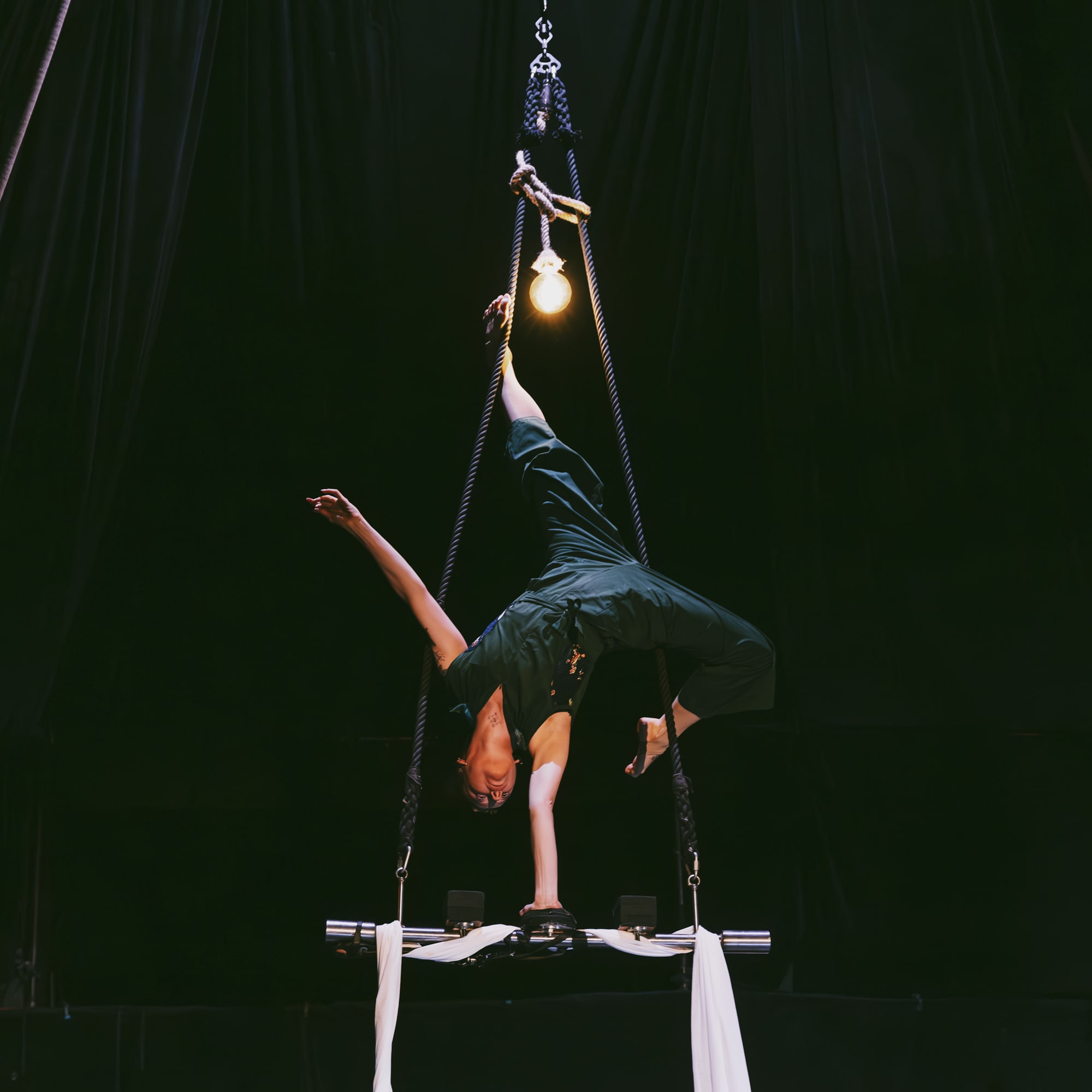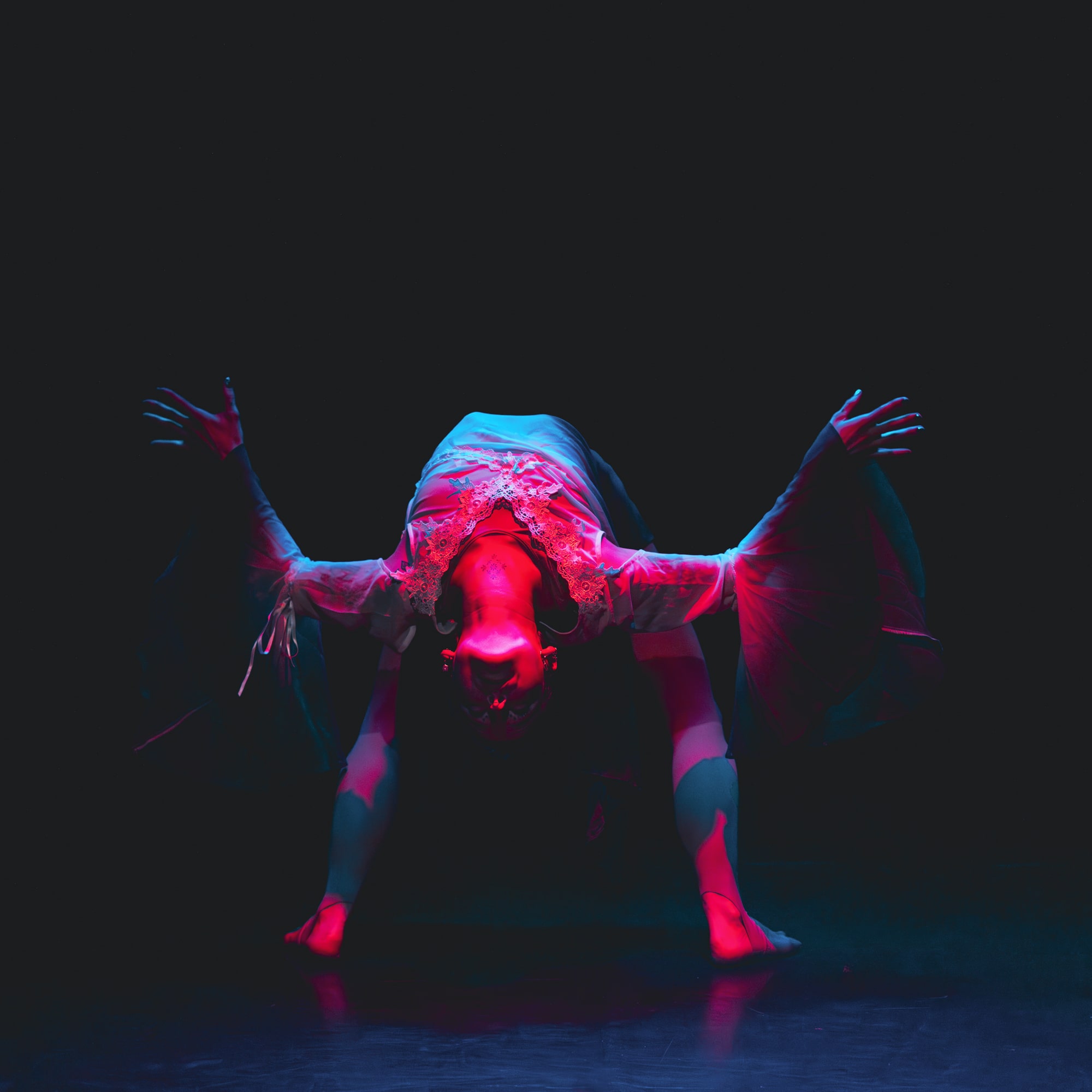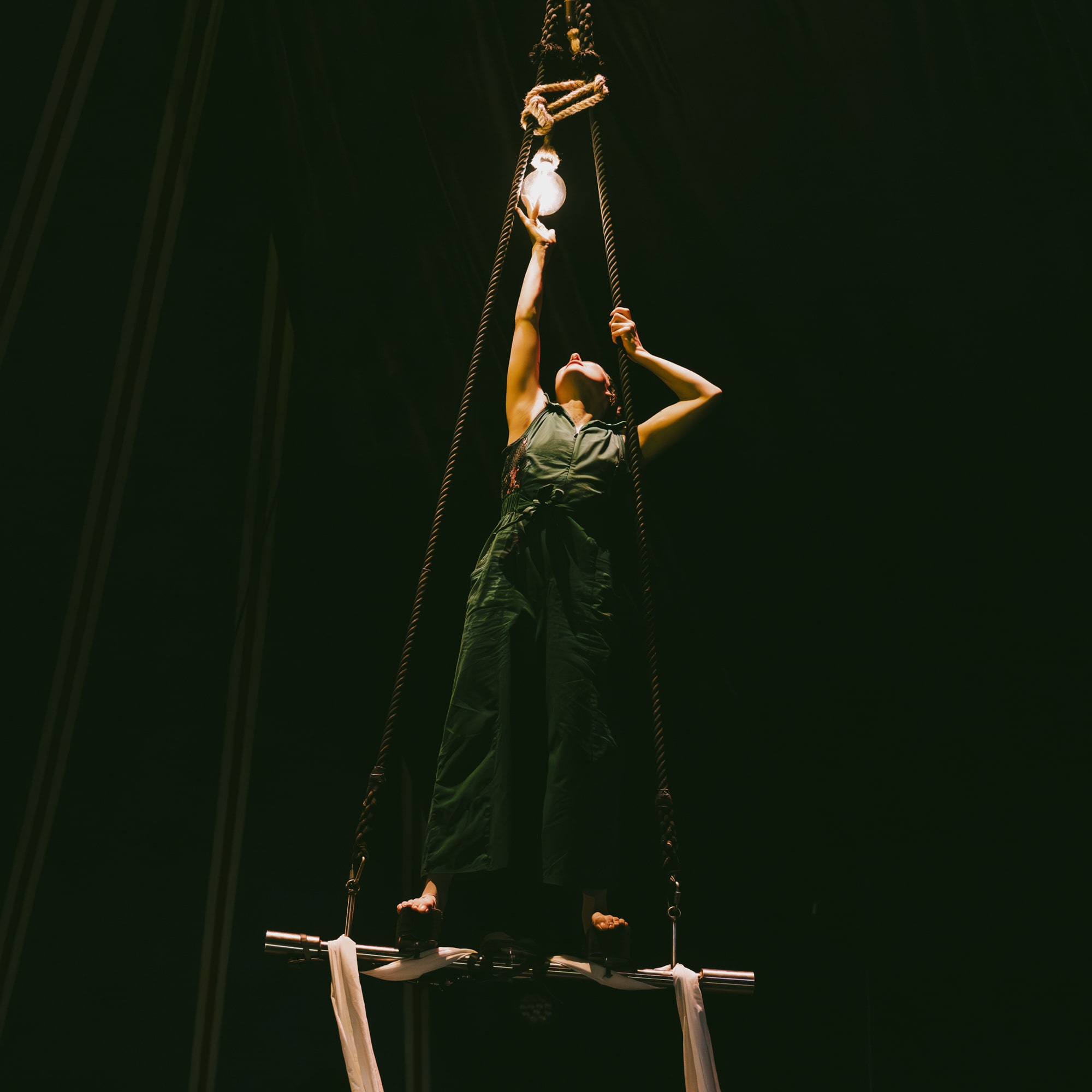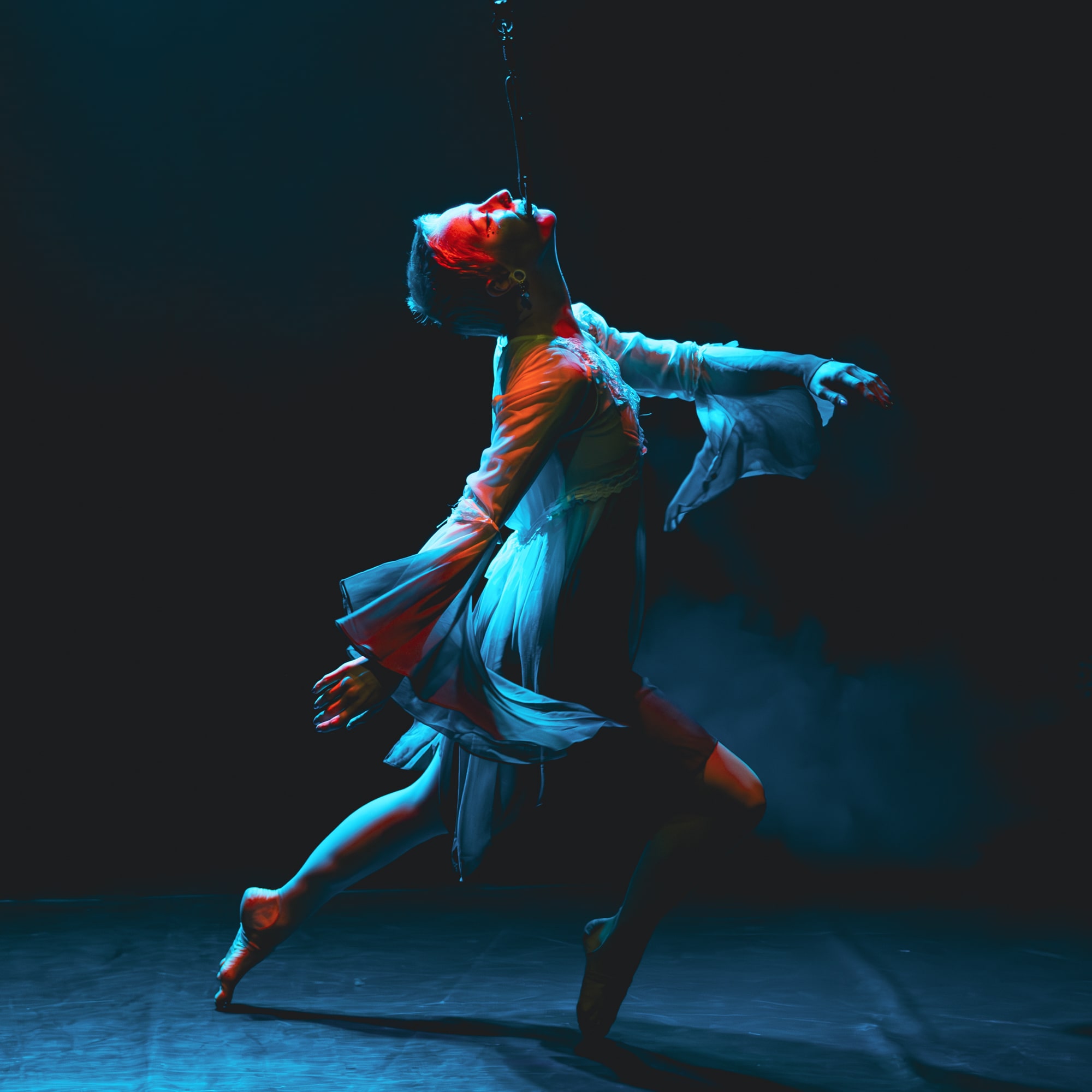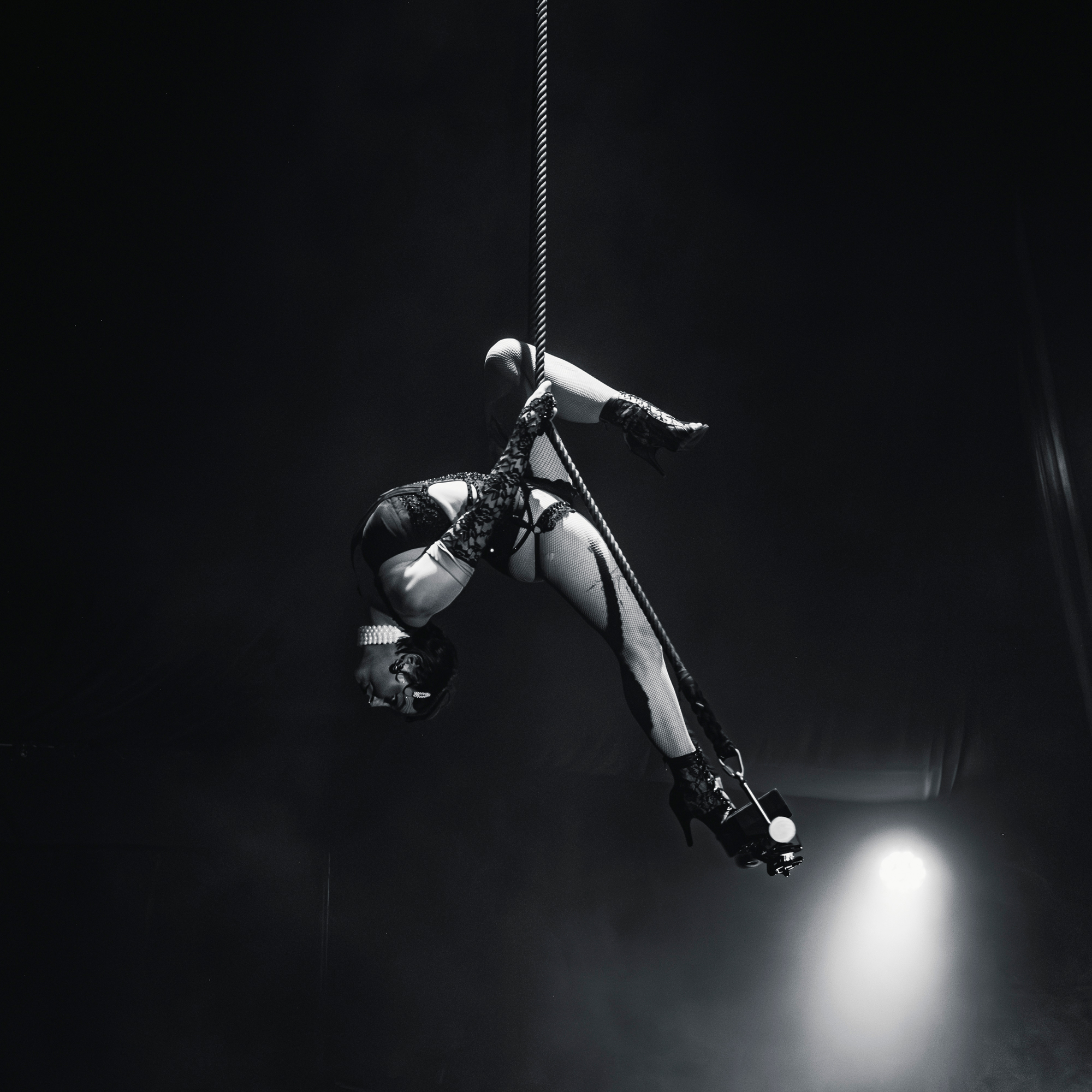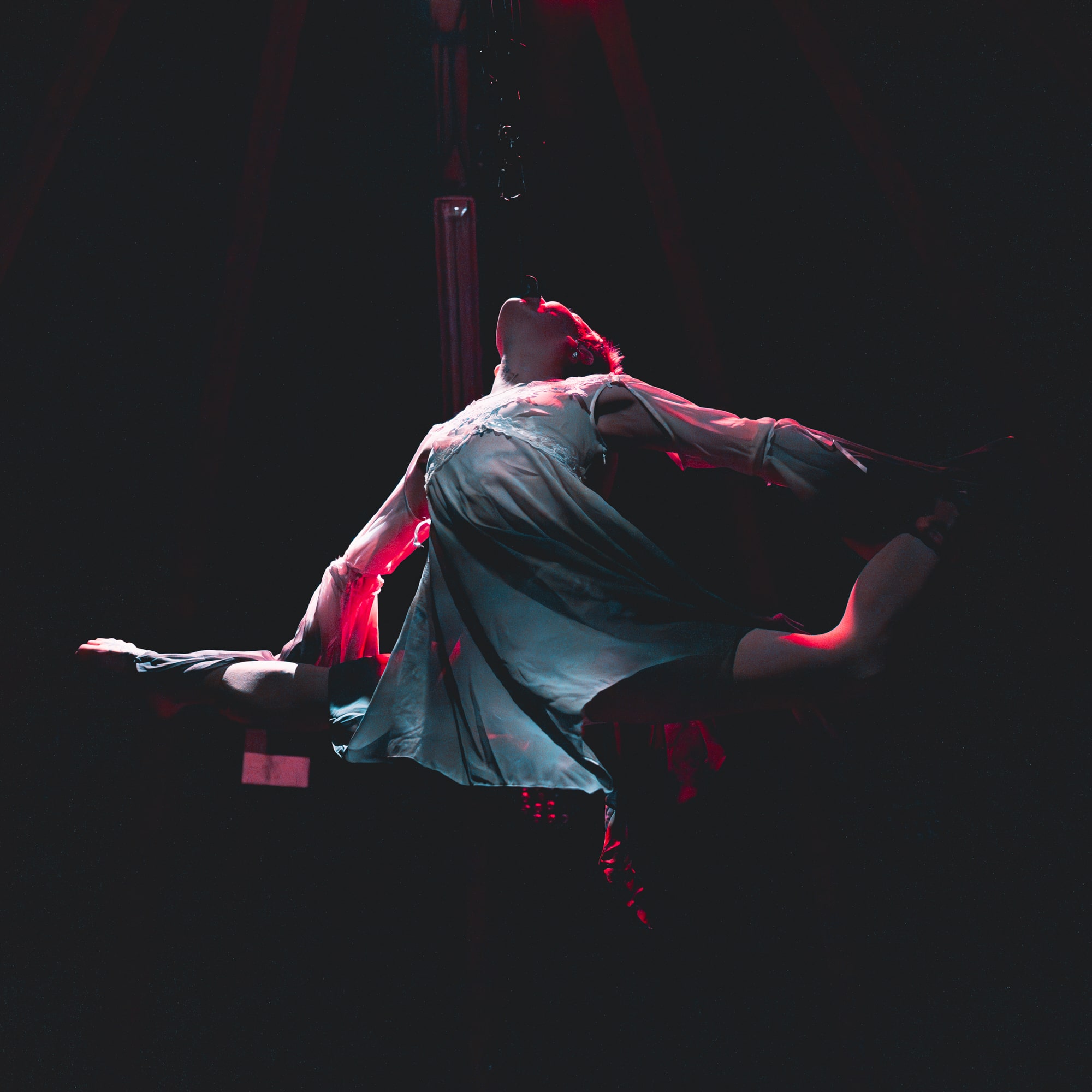I am a circus performer specializing in Washington trapeze and mouth suspension for those who appreciate the high skill level of traditional circus while embracing the boldness of a modern, non-traditional approach. I elevate these classic disciplines with a fresh perspective, creating performances that are visually stunning and add a thrilling new dimension to the audience's experience.
Biography
Most people dance on their feet on the ground, but Sarah decided to challenge the perspective of the world, reimagining dance with her feet in the air. For her, movement above the ground was not just more fun but an opportunity to redefine artistry. She flows with the rhythm of the music, letting her body narrate a story without ever speaking a word.
Originating from Switzerland and with a background in gymnastics, Sarah discovered her passion for circus arts at a young age. This passion led her to train at Die Etage in Berlin, where she specialized in hand balancing and mastered the rare discipline of Washington trapeze.
As a circus performer, Sarah blends the precision of traditional techniques with the audacity of contemporary innovation. Specializing in Washington trapeze and mouth suspension, she elevates these disciplines with a fresh, modern vision. Her performances are visually stunning, pushing boundaries and creating thrilling experiences for audiences who crave the extraordinary.
Inspired by the elegance and the power of nature, Sarah channels this contrast into her artistry. Her performances embody both grace and raw intensity, captivating audiences with a visceral energy that is as beautiful as it is bold.
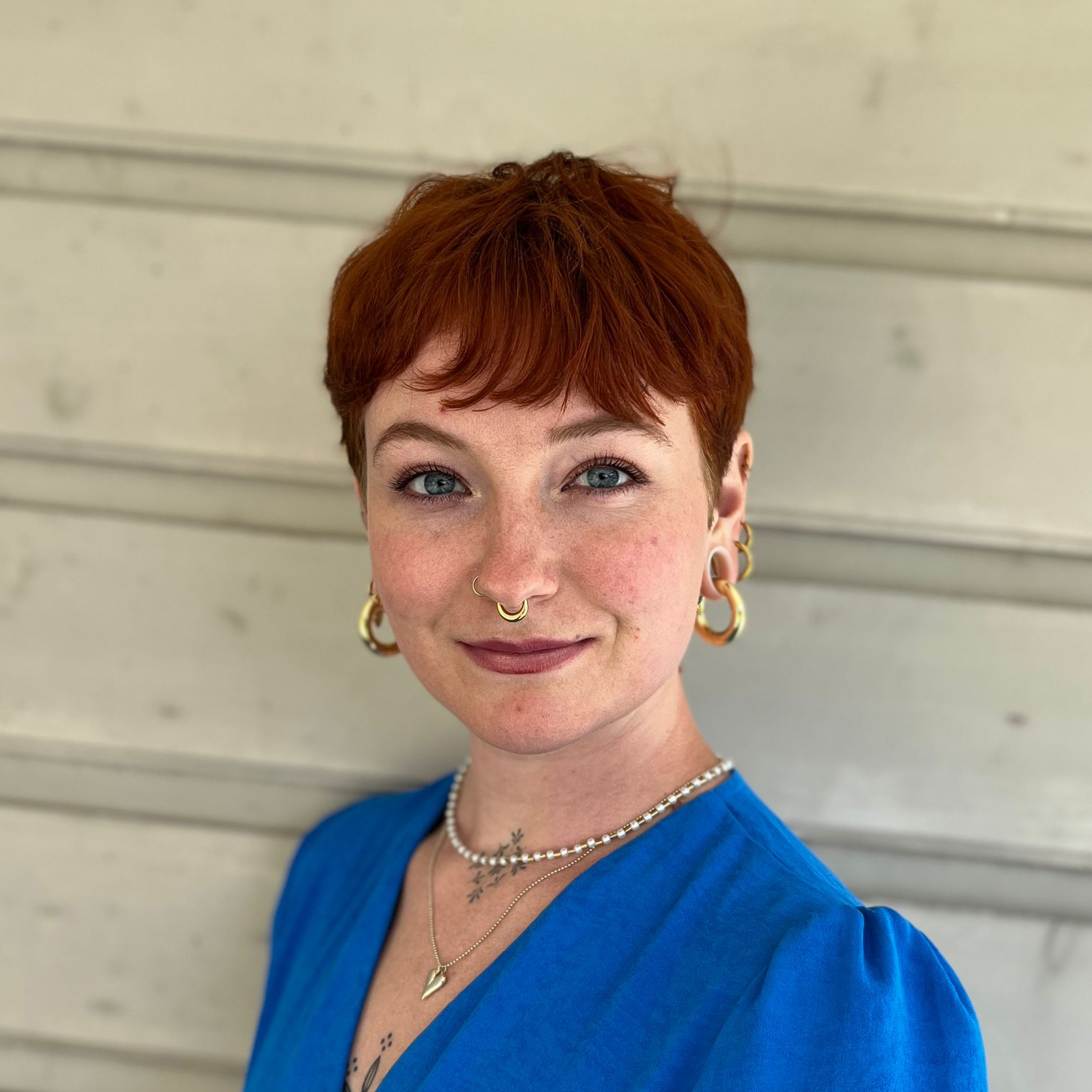
Does the menstrual cycle negatively affect the performance of menstruated circus artists?
This text is a very brief and compact version of my essay on the menstrual cycle. All the information found here were gathered by me in different studies and since there still isn’t any research done on circus performers I put together a survey that more than 80 athletes and performers answered. If you are interested in the development of the arguments or simply want to know more about the different subjects, the full text is available for free.
Despite the increasing mediatisation around the effects of the menstrual cycle, the awareness about the topic has not yet reached the sports world, and even less so, the world of circus. No complete study explores the positive and negative effects of the menstrual cycle on the performance of menstruated athletes-artists. Indeed, the physiological and hormonal phenomena involved in the menstrual cycle are not part of the common knowledge passed on to coaches and performers. However, concentration, motivation, the physical state and tiredness are some of the factors that vary in the different phases of the menstrual cycle. Moreover, these factors influence the training, performance and creativity of circus artists, but surprisingly, not necessarily in a negative way.
Menstruation
But first… some basics
In order to clarify what will be discussed later on, it might be of use to precise the workings of the menstrual cycle. Indeed, the whole cycle takes around 28 days and is regulated by the fluctuations of different hormones. The cycle is divided in four stages which are defined by these fluctuations. The first of these four stages is the menstrual phase in which menstruating people have their period. The follicular phase, during which the body begins to produce estrogen, takes place right after this, followed by the ovulation, when the estrogen level gradually decreases and the metabolism is accelerated. At last, there is the luteal phase, where progesterone level increases constantly until it reaches its peak in the middle of the phase. All of these phases are characterized either by a peak or a low of a given hormone. These changes can impact the body and mind positively or negatively with regards to creative abilities. However, it is important to state here that all menstruated athletes won’t react in the same way and to a different extent to those hormonal changes.
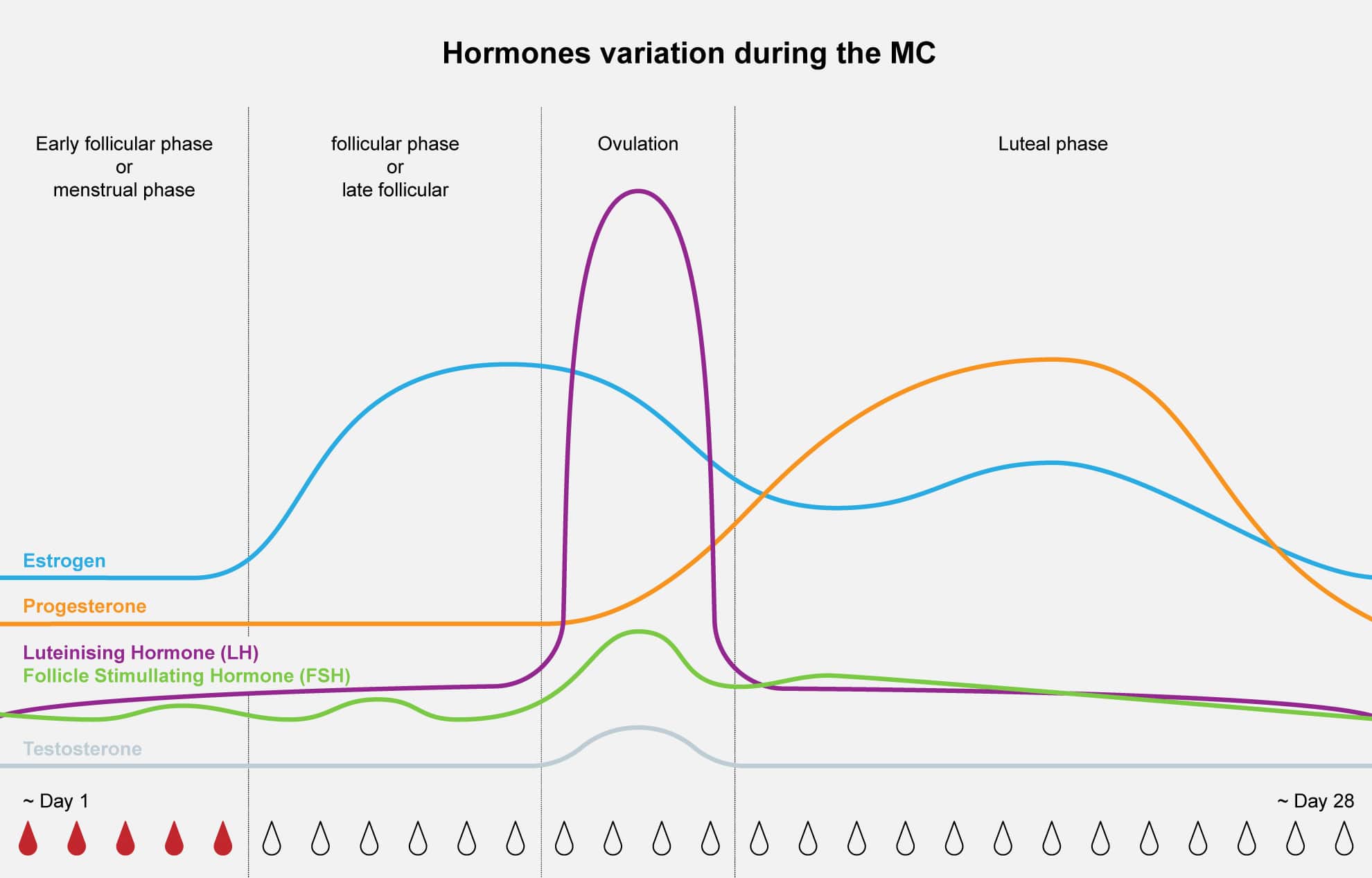
The positive effects on the artistic and creative abilities
The hormonal changes taking place during the first part of the menstrual cycle, i.e. from the middle of the menstruation until the end of ovulation, have a positive influence on creativity and artistic sense. Indeed, the high level of estrogen during the follicular phase not only increases the production of serotonin, thus improving mood, but it also reduces premenstrual syndromes (PMS). Moreover, the estrogen will lead to a peak of energy, boost the metabolism and motivation of the athlete-artist in general. Later in the ovulation phase, cognitive functions will also benefit from this hormone. Indeed, the high level of estrogen, leading to the production of serotonin, can induce a better adaptation to social situations, improved interactions with others, as well as better concentration and acquisition of new knowledge. Thus, all these biochemical reactions bring not only physical benefits to the menstruated person but also psychological and cognitive benefits. This set of factors will provide an environment that is more propitious to the artistic and creative sense.
The negative effects on the artistic and creative abilities
During the second part of the cycle, and more precisely from the luteal phase until the beginning of the menstrual phase, the ability to create and motivation in general are negatively affected. The drop of progesterone and estrogen levels just before menstruation can result in emotional discomfort. Indeed, this is known as premenstrual syndrome which is characterised by the following effects : depressed mood, anxiety, anger, lack of interest and difficulty to concentrate. Apart from the difficulty in performing and training, menstruation causes additional stress in athletes-artists as it comes with the fear of staining and the lack of understanding from coaches and sports world in general – thus affecting artistic and creative abilities.
In order to illustrate the argument, here are two representative testimonies from the survey:
"My heart sinks every time I am hired for a show and I see it is at the same time as the first few days of my cycle because I know how hard I will have to push myself and how uncomfortable it will be. I always push myself to perform through the pain because I don't want to let my bleeding get in the way of my passion, but it is always so much harder than when I perform without the extra stress and anxiety of bleeding. If I am training, I will often take the day to let my body rest, but sometimes as women we don’t always have that option because people on the business do not always accept that as a valid excuse.”
“(...) In moments of shows I see no big chance how to protect me and my body from what the "world" is expecting from me in this moment.
"I tend to feel very antisocial, extreme fatigue and heaviness/bloating the week leading up to and during my period. It makes performing shows a lot more challenging.”
There's nothing like it.
What is art for me
Art is for me a way to express my thoughts, my emotions, to follow my artistic intuitions and my desires, as an extension of my personality. It is also a personal way to share my view on the world we live in. For me it is the communication of intimate concepts that cannot be faithfully portrayed by words alone, another way of carrying our intention because words are not enough.







